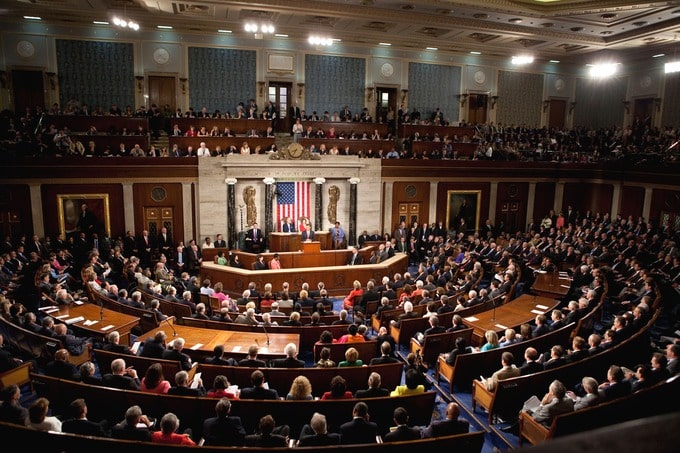As Bitcoin and other cryptocurrencies grow in popularity, the debate surrounding their regulation intensifies. Rep. Bill Foster, a Democratic congressman from Illinois and co-chair of the Congressional Blockchain Caucus, recently addressed the need for Bitcoin regulation during an Axios virtual event. Highlighting the challenges posed by ransomware attacks, Foster proposed introducing laws to identify crypto users and potentially reverse fraudulent or mistaken transactions.
The Need for Regulation in Bitcoin Transactions
Criminal Use of Bitcoin
- Foster pointed to the rising trend of criminals demanding ransom payments in Bitcoin instead of cash.
- He stated that cryptocurrencies pose unique challenges due to their decentralized and anonymous nature, making it harder to trace illicit activities.
A Fundamental Difference
- According to Foster, there is a significant difference between crypto-assets and real-world assets like cash.
- This distinction calls for tailored legislation that considers Bitcoin’s unique characteristics.
Proposed Measures for Bitcoin Regulation
Unmasking Crypto Participants
Foster proposed that the law should:
- Empower federal courts to identify anonymous cryptocurrency users.
- Ensure mechanisms are in place to unmask participants involved in fraudulent or criminal activities.
Reversing Transactions
- Foster suggested exploring ways to reverse Bitcoin or other cryptocurrency transactions deemed fraudulent or criminal.
- This would provide victims of crimes like ransomware attacks a way to recover their funds.
Hypothetical Scenarios and Their Implications
Foster presented an example to illustrate his point:
- The Scenario: If a victim is coerced at gunpoint to transfer Bitcoin to a criminal’s wallet, should they be left without recourse?
- The Solution: Foster argued that courts should have the authority to reverse such transactions through cryptographic means.
Bitcoin and Ransomware Attacks
Colonial Pipeline Example
- Foster referenced the ransomware attack on Colonial Pipeline as a prime example of why regulatory measures are critical.
- The attack disrupted fuel supplies across the U.S. East Coast, highlighting the national security risks posed by unregulated cryptocurrencies.
The Cryptographic Backdoor
Foster suggested the need for a “cryptographic backdoor” that allows authorities to:
- Reverse transactions flagged as fraudulent or criminal.
- Protect individuals, businesses, and governments from ransomware attacks.
Public Response to Foster’s Proposals
The congressman’s comments sparked significant debate:
- Criticism on Social Media: Many crypto enthusiasts mocked the idea, arguing that it goes against the decentralized ethos of Bitcoin.
- Misunderstanding Bitcoin: Critics claimed that Foster’s proposals showed a lack of understanding about how Bitcoin and blockchain technology work.
- Concerns Over Privacy: The suggestion to unmask participants raised concerns about user privacy and the potential for misuse of such powers.
FAQs
What is Rep. Bill Foster’s stance on Bitcoin regulation?
Foster advocates for laws that empower courts to identify crypto users and reverse transactions flagged as fraudulent or criminal.
Why does Foster propose reversing Bitcoin transactions?
He believes this capability is necessary to protect individuals and organizations from ransomware attacks and other crimes involving cryptocurrencies.
How have the public and crypto community responded?
Many in the crypto community criticized Foster’s proposals, arguing that they contradict Bitcoin’s principles of decentralization and anonymity.
What is a cryptographic backdoor?
A cryptographic backdoor is a mechanism allowing authorized entities, like courts, to access and reverse specific blockchain transactions.
What challenges do Foster’s proposals face?
The primary challenges include maintaining privacy, upholding Bitcoin’s decentralized nature, and developing technology to implement such measures without widespread misuse.
Conclusion
Rep. Bill Foster’s call for Bitcoin regulation underscores the growing need to address the challenges posed by cryptocurrencies in combating ransomware and fraud. While his proposals have sparked intense debate, they highlight the balancing act required between maintaining Bitcoin’s decentralized nature and ensuring regulatory safeguards. The discussion around these measures is far from over as governments worldwide grapple with the implications of digital currencies.
To learn more about the innovative startups shaping the future of the crypto industry, explore our article on latest news, where we delve into the most promising ventures and their potential to disrupt traditional industries.
Disclaimer: The information provided is not trading advice, Bitcoinworld.co.in holds no liability for any investments made based on the information provided on this page. We strongly recommend independent research and/or consultation with a qualified professional before making any investment decisions.




